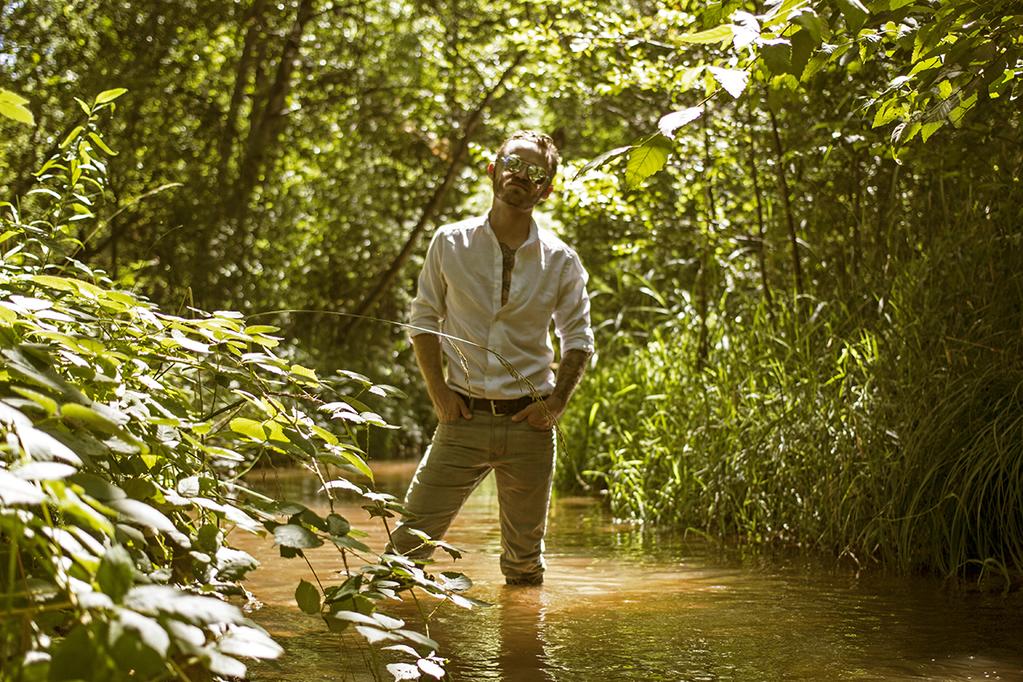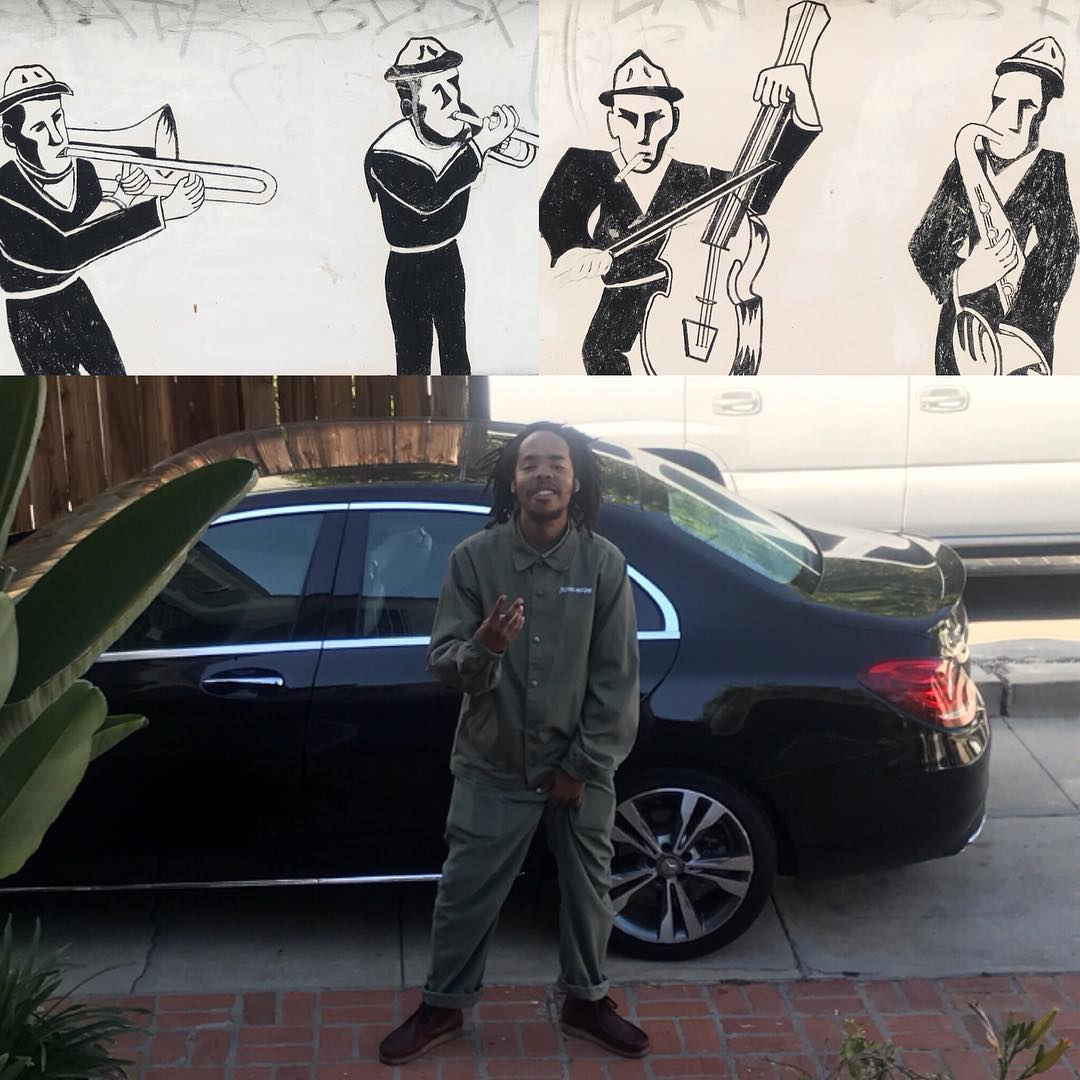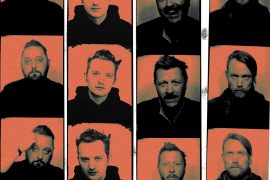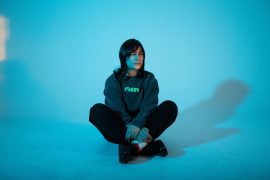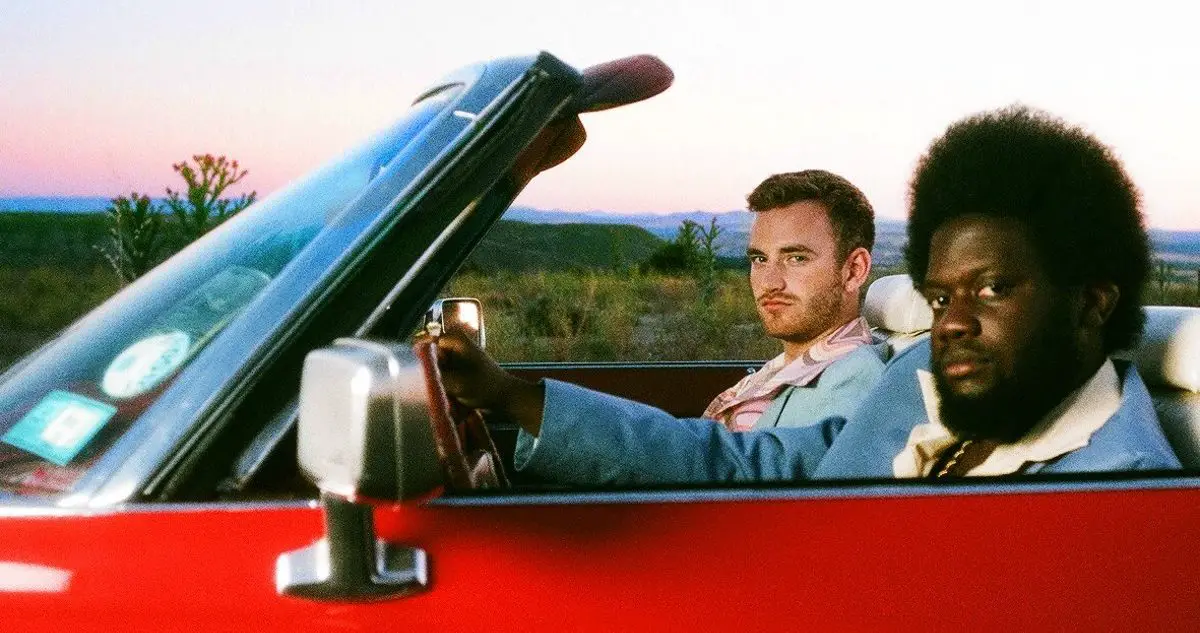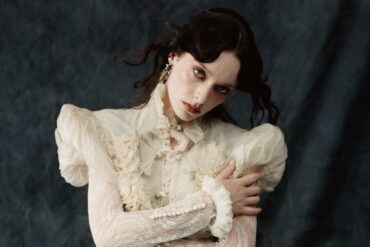The art of music has been toyed with, worked, reworked, chewed up and spit back out for as long as it has been around. It is constantly challenging conventions, allowing for the artist to explore and experiment with a craft to which they have wholeheartedly connected themselves. With this idea of musicianship, you’d be hard-pressed to find anyone more willing to challenge the “norms” than decker., spearheaded by the eponymous Brandon Decker. Hailing from Sedona, AZ, Decker (and “decker.”) has been distinctly planted in indie music as a sweeping nonpareil, and cannot and will not be swept under the rug.
Music should be evocative, harboring feeling with such vehemence that it undoubtedly strikes a chord with someone. decker. embodies this ideal: Brandon Decker’s zealous vocals paired with decker.’s salient instrumentals elicit an unmatched emotion as each song feels vaguely personal, regardless of any real attachment to the lyrics. decker.’s most recent effort, Patsy, is an eloquent reminder that music should be expressive, it should be unique and, above all else, it should be intimate. Each track is an exalted reminder of the effect and power that music has, cloaked beneath the guise of a matchless style that cannot even be clearly pinpointed.
Atwood Magazine recently chatted with Brandon Decker between touring circuits. Passionate, thoughtful and remarkably profound, Decker exudes normalcy and harmony as he recounts tales of his childhood, his own son, and the dynamic impression that music ultimately has. During our conversation, it became increasingly apparent that Decker is simply a regular guy from Arizona, never taking for granted the incredible opportunity that he has to share his unique art with the world.
Watch: “Patsy” – decker.
[youtube=https://youtu.be/5B2PYNqpy-A?t=0s]
A CONVERSATION WITH DECKER.
Atwood Magazine: Thanks so much for chatting! So, when did you first get interested in music?
Brandon Decker: I was really young, probably around seven years old. I was listening to stuff like The Everly Brothers – that era of stuff; I remember I was really obsessed with it — much to the dismay of my parents and grandparents, who had to hear it all the time. Right around that point, my mom and I had moved to Texas, and we were roadtripping back to Colorado. I spent the first third of my life in Denver, and then we moved to Texas, and my mom had these two Fleetwood Mac tapes, and that seemed like all she wanted to listen to.
I get that. My parents did something similar, where they'd be playing music around me and it's really influenced what I listen to now. Who was your inspiration while you were growing up? Either musically, personally, or both.
Brandon: I don’t know how much — well, I guess it is an influence, which is embarrassing — I was just remembering the other day, that when I was like, fourteen, fifteen, sixteen, it was nothing unique, but I was obsessed with Jim Morrison and The Doors. As I’ve gotten older — I used to get a lot of backlash for that, I really disliked The Doors for awhile — but I’ve come back to like them again, and it’s definitely more on a musical basis. I was really into the more “poetry people;” y’know, you’re at that age, fifteen and sixteen, when you’re breaking off into your own “personhood.”
I got into The Doors right around fifteen/sixteen as well, but then fell off as I’ve gotten older. I think it might be just like, a “Doors” thing.
Brandon: It could be! Now when I listen to The Doors, I like to listen to the more rock n’ roll, the later stuff, like “L. A. Woman.”
There's absolutely nothing wrong with that. Who, then, is your inspiration now, either with your music or just in your life as you’ve gotten older?
Brandon: I would say my biggest inspiration is probably my son. When I was making my second album, that was when I also did my contribution to making him. That was right around when I was starting to take music really seriously; I was around 29, and I had been writing songs since about 2000. Around 2006 was when I started really knowing that it was something that I wanted to do; right around the end of 2009 was when I put out my first album. And I wanted to take it really seriously, then I found out I was going to have a son. At the time it seemed really jarring — but in terms of talking inspiration, I think it’s always made me, and it’s continued to make me feel like everything counts. Everything counts. If I’m going to go be away on a tour, it’s gotta be worth it. Any time that’s gonna take away any time from my son, it’s got to be the right thing. It can’t just be that we’re gonna go get trashed at the local bar and do crappy shows. But there are two different areas that I kind of draw: I really, lately, have been really intrigued by these iconic figures, and watching documentaries on Netflix and stuff like that. But then also, I’m really inspired by a lot people that I’ve met in the last three or four years that are always like a year further along than me, and our development [as decker.]. To me, there’s the “blue-collar, goin’-gettin’-it, working-hard-for-it, putting out an album, touring all the time;” not in that sexy, “we’re playing for a thousand people,” or even five hundred people a night; sometimes they get that, but sometimes they get twenty people on a Tuesday, but they just keep doing it. I think that shared community there is a big inspiration for me to keep going.
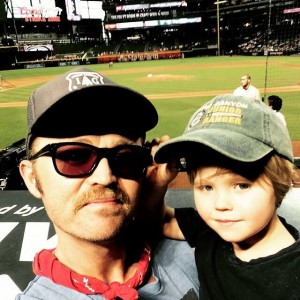
That’s awesome. That’s a great way to think about it, and good way to kind of push yourself forward as well.
Brandon: I’ll just say this: it’s something much deeper than you can even pinpoint. I know there’s lots of points where I’ve been like, “What the hell am I doing?” And things on paper don’t look good, or things in reality don’t look good, I’m tired or I’m broke or whatever; I just think there’s this greater yearning to just keep going that I couldn’t even really explain, more so it’s something that I have just begun to acknowledge. I don’t think it’s a choice, though I suppose everything is a choice, but I choose more like an innate “thing,” at this point.
There’s not a lot of separation from me and the music.
Well that’s very insightful. How do you feel that you differ from other artists, in general or within your genre? How do you feel that you’re able to separate yourself from them?
Brandon: I mean, I don’t think there’s any time when the band doesn’t talk about other bands, either positively or negatively, or maybe sometimes even snarkily, but I try for that to not be my “goal” or my “M.O.” I don’t know. I definitely spend more of my time trying to think of how I can get better. So I couldn’t say, but I know this: I know that I’ve really asked myself frequently what art is lately, and what is the end goal of art? Like, how do we know when we’re doing it right? And the answer that comes to me is that it has to be personal and authentic. And I feel like what is personal and authentic to “decker.” is that I feel that I always–that’s the only kind of art I know how to create. So for me, what it’s always been about is sharing “me.” There’s not a lot of separation from me and the music. Sometimes when I try to gear off of that, and I try to be something that is more universally palatable, it kind of falls flat, flatter than I would like it to. And it’s kind of this reminder that, y’know, [I] can’t go doing that. I guess what’s unique about it is all of the past that I’ve gone through, and my struggles, and how I’ve grappled with them and tried to maneuver through them, and still continue to try maneuver through them.
That’s great. I mean, every artist, I suppose, has their own reasoning for why they do what they do. So really, you are unique by just being yourself and having your music.
Brandon: I feel like, we’ve never been a “genre.” I mean I guess there’s a genre you could say, like people who don’t know us say like, “Oh, well that’s just crappy folk.” But it’s not folk. I don’t know what it is! Maybe like, singer-songwriter-y, that’s a little more instrumentated and unique than what you think of a normal guy with an acoustic guitar. We’re just trying to make our own art.
I just think there’s this greater yearning to just keep going that I couldn’t even really explain…
So do you try to add any specific element to your songs to distinguish them as “decker.” tracks? Or do you just like to write a lyric and play around with it?
Brandon: Well unfortunately for me, I have never been able to be that direct when writing a song. [But] I guess when I wrote the song “Patsy,” it was pretty direct. I knew I wanted to write a song about Lee Harvey Oswald, and I knew at the time we wanted to write kind of like “chamber music,” or something. Like, we really wanted to have the guitar playing against the piano, and have some strings, but then it kind of became another thing. But, y’know, I don’t think I ever get too heavy-handed with trying to inject things into songs; they follow their own accord a lot. Honestly it’s so left brain/right brain, and I’ve been so right-brain with the work of this record for a couple years. How the songwriting process happens for me is spending time in that realm — I’m thinking of words, and I’m feeling things, and they run from there.
Listen: “Patsy” – decker.
[soundcloud url=”https://api.soundcloud.com/tracks/168823442″ params=”auto_play=false&hide_related=false&show_comments=true&show_user=true&show_reposts=false&visual=true” width=”100%” height=”150″ iframe=”true” /]
Very cool. I noticed on the album that you have a lot of sweeping instrumentals that flow into other songs, which I think is really, really cool. How does that play into the overall theme of the album?
Brandon: That’s something that I’ve done since the first record, and it doesn’t appear on all of the records, but it appears on most of them. And when I was making the first album, this friend of mine had given me a computer and some recording gear, and he was like, “This is how you record.” And I had always been intimidated by it. But he was like, “You’re gonna have to do a lot of this on your own. I’m not gonna help you do it all.” We were only meeting once or twice a week. So the first thing I ever recorded was one of these little interludes, and I think it still holds water, honestly. It’s really neat. But for me, the records, all of them for me are I guess what you can call a “concept record.” All of these records for me really represent this picture of who I was as a person and as an artist at that time, and so I think all of my records – with the exception of maybe the EP – all of them are kind of met with this journey. I’ve always pretty much known the order of songs intuitively for a record once all of the songs were written. It’s always made sense how things were gonna go. And I feel like my albums are definitely better off like, if you put it on when you’re going on a drive.
Very cool. Yeah, I definitely think that opening with “Saigon” was the coolest way to draw in a listener. I was like, “Oh, okay, cool. This is gonna be interesting. This is gonna be different.” I thought it was a really neat way to start it out.
Brandon: Well thank you. Now that one, I have to attribute to one of those type figures that I was describing earlier. There’s a buddy of mine named Dustin Hammond, he goes by “Run on Sentence,” and he’s been a big inspiration of mine for a long time. I had given him the almost-done version, and it actually started without that, it started with “O.D.B.” My thought was I was gonna hook in “O.D.B.” with the song “Ol’ Dirty Revival,” and he was like, “Man, I gotta tell ya, I think it’s weird starting with this song, when the whole rest of the album is nothing like that at all. I think you gotta do something weird to start this record off — it could just be like, 20 seconds.” Then the album was in mastering, it was almost done, and I had to get in there and figure something out.
Listen: “Saigon” – decker.
[soundcloud url=”https://api.soundcloud.com/tracks/168820227″ params=”auto_play=false&hide_related=false&show_comments=true&show_user=true&show_reposts=false&visual=true” width=”100%” height=”150″ iframe=”true” /]
Do you have a favorite song from Patsy that you like more than another, and why, if you do; does anything hit home with you more?
Brandon: Well, I will say this: when I wrote the song “Cellars,” probably a matter of days after finishing the fourth record Slider, it was like this song that would never make it on the record, but it was this song that instantly became our best live song. It’s like this nine-minute thing, and for some time we used to start our shows off with “Cellars.” Our thought was, “If you like this, we’ve got you. And if you don’t like this, then there’s nothing we’re gonna do in the hour we spend together that you’re gonna like anyway. We tried. We tried to win you.” We don’t do that anymore, but for a long time “Cellars” was “that” song for me. The one thing about “Cellars” is that it has this four-minute section of no vocals or lyrics, and I’ve always been a more lyrically-driven person. It was the first song when we really had this jam-out, freak-out, and in that way, it was the first time I ever personally learned how to experience the emotions of music without having it be me telling a story with words. I feel like “Cellars” really captures that component well.
Listen: “Cellars” – decker.
[soundcloud url=”https://api.soundcloud.com/tracks/168824465″ params=”auto_play=false&hide_related=false&show_comments=true&show_user=true&show_reposts=false&visual=true” width=”100%” height=”150″ iframe=”true” /]
Do you still like to play that song to play live?
Brandon: I like it live, but I also noticed that I really enjoy playing the song “Spades” lately. I feel like the band kind of grooves well on that.
Listen: “Spades” – decker.
[soundcloud url=”https://api.soundcloud.com/tracks/168823776″ params=”auto_play=false&hide_related=false&show_comments=true&show_user=true&show_reposts=false&visual=true” width=”100%” height=”150″ iframe=”true” /]
How many songs do you typically play in a live set, since “Cellars” takes up so much of that time?
Brandon: I would say probably around seven or eight; there’s not a lot of long songs. There was a period when we were trying to keep it upbeat, and we would play a song that was short and kept peoples’ attention and [did] stuff that was more “dance-worthy.” We were doing this set where we were worried about song lengths, but we finally hit a point where it’s like, we’re gonna play what we wanna play in whatever order we want to play it. If what our music is about is this kind of “experience” or “journey,” then why shouldn’t we do that live? We’ll start off with an eight-minute song, and then there’s like three to four seven-minute songs in the set anymore.
You’re testing your audience’s loyalty.
Brandon: We just want to do what we do best. And what we do best isn’t like, indie disco — we might be able to dabble in that, but it’s not our strongest stuff — really, where we do well has been these kind of songs that journey around a little bit.
That’s great, and I think that’s a cool way to experiment with music and performing. Going along with live stuff, do you have a dream festival that you would love to play, or have you played a festival that you’d love to go back to?
Brandon: Well I mean, obviously we’d all want to play Coachella and Lollapalooza. I think those sorts of things are benchmarks where you go when you’re doing something right. Will it ever happen, who knows; but past that, we’re open to any good shows. I think we’ve definitely set our sights more on taking these cities where we’re working on it, and we pack the teeniest rooms.
We’re just trying to make our own art.
I agree with that. I think club shows are more fun. I think they have a much cooler vibe; it’s just a cooler setup.
Brandon: I mean, I went to a lot of festivals as a kid. But our drummer, he goes to Coachella every year. He loves them. But I know for me, I’m kind of hermit-y anymore and I get overwhelmed in large crowds, but I definitely like the vibe of [club shows]. I think that’s the great thing about our music, what’s good about it is that it’s about that; not that you can’t be intimate in a [bigger] room, but I definitely have more fun when we play a smaller club.
Are you ready to go back out on tour?
Brandon: Oh yeah, definitely. It’s been weird being back. I mean, it’s great. I’ve definitely taken in my son as much as possible, and I’ve probably hiked like five or six days a week since we’ve been back. But it’s also this kind of like no-man’s land, waiting to go back.
So what is the overall message that you would like to present with your music?
Brandon: I honestly believe that it’s like healing and transcendence. I mean, I think that’s what I’m talking about. For me, the reason why I make music is because life gets hard. And no matter what, we all get punched in the gut. Life is hard on all of us, and we all have to learn how to handle that, and hopefully we can develop the strength to assess it and see it and want to improve it, rather than just get beaten. I think the message for my music is [just that]. Y’know, I’ve been down some dark roads and in some dark places, and I think there are a lot of humans who have. And I feel like there are some people who are more able than me and some people are less able than me to go there and talk about it, and have self-awareness and work through it. I think like, if it’s a Venn diagram, I want to be with people who somewhere have that experience, and they want to talk about it. Maybe it’s that they want to be inspired, or maybe it’s just nice to hear someone talking genuinely about their own plight. For me, the music that I end up liking a lot, I usually know halfway through the first song that its going to be one of the ones that’s going to be in my collection forever; often I’m like, “This speaks to me.” I guess that I just hope that I find people who feel that way about the music that we’re making.
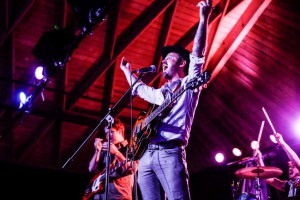
To be inspired is one thing, but to be inspiring is an entirely different animal. Brandon Decker successfully accomplishes both with “decker.,” utilizing his musical prowess to provide a means by which people can feel both exhilarated and enlightened, vitalized as the music soars beyond all comparison. Brandon Decker is the everyman, the every-voice, the everything that music deserves. He is steadfastly relatable while remaining wholly mellowed – a perfected dichotomy that provides purpose without being fervently preachy. Decker and decker. remain elegantly transparent, all while forever challenging convention and the supposed idea of “what music is.”
Watch: “O.D.B.” – decker.
[youtube=https://youtu.be/gJKWSNRGVVs?t=0s]
You can follow decker. on Facebook, Twitter, and Instagram.
Patsy – decker.
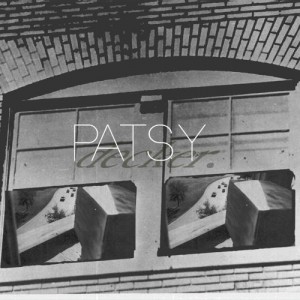
Patsy For The People Tour
Remaining 2015 Tour Dates:
10/07 – New York, NY @ Rockwood Music Hall
10/08 – Hoboken, NJ @ Maxwell’s
10/09 Philadelphia, PA @ Bourbon & Branch
10/10 – Washington, D.C. @ The Pinch
10/11 – Cincinnati, OH @ Adjust Your Eyes Festival
10/14 – Fort Collins, CO @ Downtown Artery
10/15 – Jamestown, CO @ Jamestown Mercantile
10/16 – Denver, CO @ Walnut Room
10/17 – Albuquerque, NM @ Sister
10/23 – Flagstaff, AZ @ Monte V
10/24 – Roosevelt, AZ @ Apache Lake Music Festival

